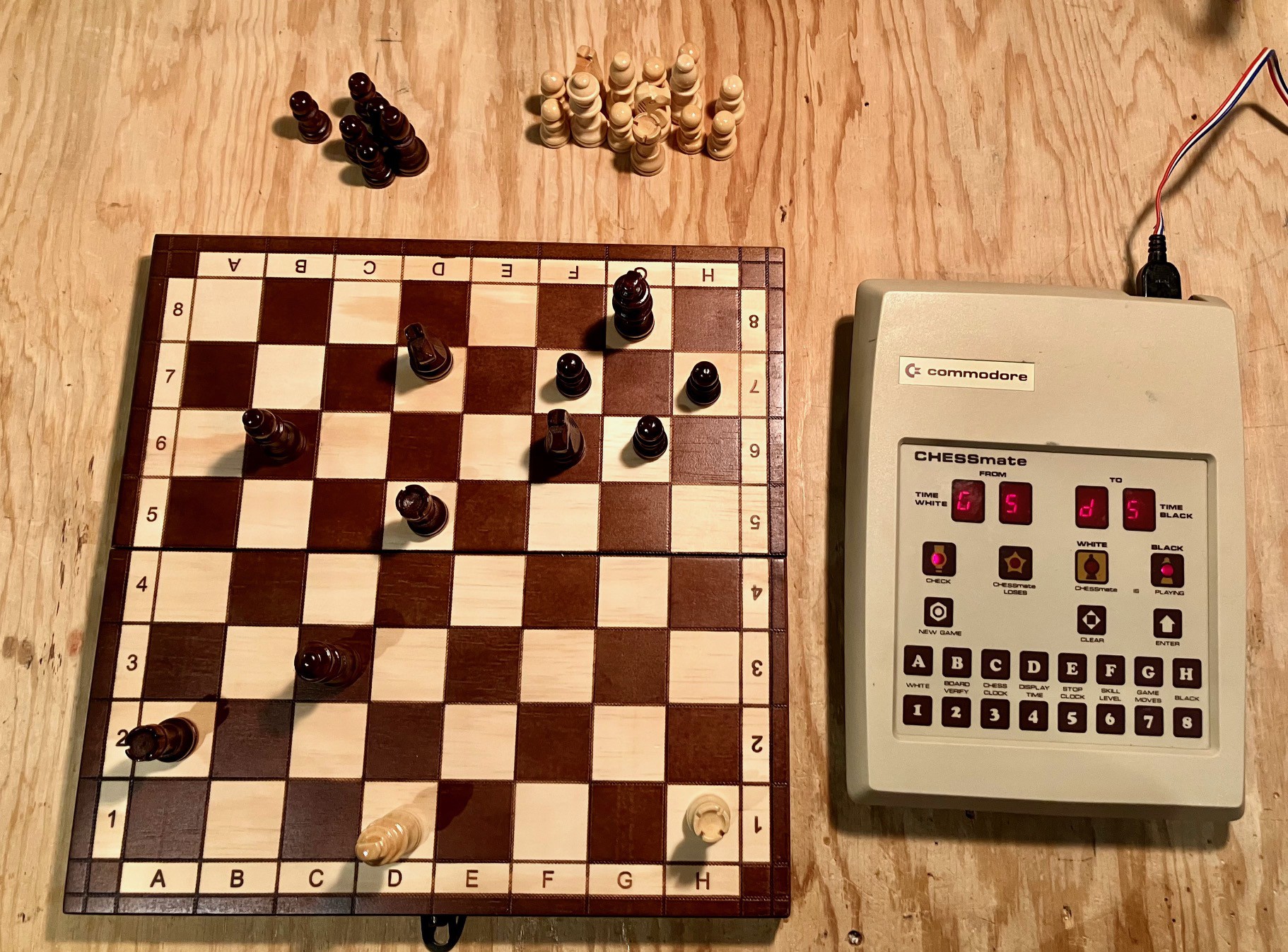As I was working on the PCB I realized that aside from poking around on the original CHESSmate to make sure it was working, I had not actually played a game against it.
Since the CHESSmate does not have a display to show the board you need to have a physical board to keep track of the moves. To that end I purchased the small travelling chess set you can see below (https://a.co/d/i9xmQcL) This was one of the least expensive sets, but I'm very impressed with it. Solid build. Pieces are smallish but have a nice feel. There is even an extra Queen for pawn promotion. Also a plus, the rows and columns are clearly labeled, which you need when entering and reading moves on the CHESSmate.

Now I'd like to say that I was playing black in the above game, but I wasn't. I was never a strong chess player, and I did make a few unforced errors, so I'm not too surprised. What I was surprised about is how much fun I had.
Unlike modern AI based chess programs, there is a good chance that an average person (if they concentrate and don't make stupid errors) can beat CHESSmate. This is not because the programming is lacking, it's actually very clever. The reason is that the programming is constrained to only 2K of memory.
I'll do better next time.
Update 2024-01-14
I brought the CHESSmate to a monthly Retro Computer Club meeting this afternoon that takes place at my local makerspace, Kwartzlab. It just so happens that there was another gentleman there who brought a TIMEX sinclair 1000 (ZX-81) with a chess program, so we tried to have a match between the two machines.

Unfortunately we could not seem to make it through a whole game without messing up when keying in the moves. Neither program had a way of "taking back" a move once it had been entered. Oh well, it was fun none-the-less trying to guess what the next machine move would be. We didn't get far enough to decisively determine which machine had the upper hand, but if I had to guess, the 16k program on the ZX-81 might have been stronger.
 Michael Gardi
Michael Gardi
Discussions
Become a Hackaday.io Member
Create an account to leave a comment. Already have an account? Log In.